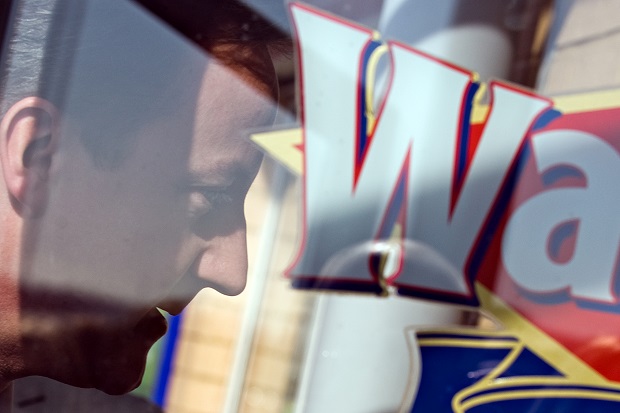Well, the great breadmaking debate hots up. David Cameron neatly sidestepped the heffalump trap that Nick Ferrari put in his path in an interview on LBC when he asked him the price of a Value Loaf in Tesco or Sainsbury. As you and I know, dear reader, Mr Cameron would no more eat that stuff than his own fingernails, and I for one applaud his good sense. If you can afford not to, don’t. But his elegant solution to the problem of not knowing that loaf-shaped carbohydrate costs 47p (he thought bread costs ‘north of a pound’, which is true of the kind he eats, only double that) was to say that he makes his own bread, from flour milled in the Cotswolds, a process which takes all of 30 seconds in a breadmaker as a way of getting his children to eat granary loafs.
And, you know what… they do! Eat that, Mumsnet.
Already the matter has got the pundits going. Xanthe Clay of the Telegraph has opined on the PM programme that breadmakers suck. And, given that chez McDonagh, we make bread pretty well every night, to bake the next morning, may I say that she’s right; five or ten minutes’ work will give you a fab loaf, with just flour, water, salt and yeast. And for those Tory MPs seeking to show how completely in touch they are, may I say that you can purchase economy strong bread flour, 1.5kg in Tesco for all of 80p, and Christ only knows how they do it.
Anyway, a debate about the price of bread makes a nice change from the price of milk, which caught Boris Johnson out last night. Nadine Dorries’ gibe at Messrs Cameron and Osborne, as posh boys who don’t know the price of milk, stuck because it’s true. They don’t have to. Angela Merkel actually does do her weekly shop in her local Berlin supermarket without anyone even noticing; if David Cameron did the same, it would look like a cheap effort to look like he’s in touch.
There are two underlying issues here…actually probably just one. The most obvious is David Cameron’s problem with women voters. A Mumsnet poll has re-emphasised previous findings about women voters’ disenchantment with the PM. That follows earlier research conducted by Ipsos MORI, which shows that Mr Cameron’s five-point lead over Labour among women voters in the last general election has turned into a 13-point deficit. Since you ask, they, we, think he’s out of touch. Which he is, though probably not half as much as the Chancellor.
These polls can make me a bit restive. I mean, if it were the other way round, and men were turning their noses up at the PM, would we be running stories about his Problem with Men? I think not.
But the reason why this issue has real traction is that women are, by and large, even in the most egalitarian households, the keepers of the budget. They tend to do the shopping, pay the gas bill. And the single most outstanding issue for those who pay for things is, as Labour has correctly identified, the ever rising cost of living. Inflation is officially at 2.8 per cent, comfortably above most people’s current pay rises. But you can forget it when it comes to essentials…food, gas and electricity, fares (in London, you can expect 10 per cent increases, every bloody year), things you just have to pay. The figure of 2.8 doesn’t come anywhere near it. My own rough estimate is how far twenty quid will get you in Waitrose or Tesco or the local farmers market, depending on how grand you are. And my own dim feeling is that it lasts significantly less than it did after 2010 election…just a hunch, mind you, but I’d say that a fifteen per cent decrease during that time wouldn’t be far off, and that’s while you’re digging deep into the Essentials range.
And as The Spectator has made clear every time it engages with the issue of Quantitative Easing, for ministers, for the Bank of England, inflation is just one of those things we’ve got to put up with. And inflation, the cost of living, par excellence is the real Women’s Issue.
You know it wasn’t always like this. John Major, the circus impresario’s son, always banged on about inflation because he belonged to a class that had to struggle to pay for things. He was popular with women voters until 1992. And nobody jeered at him for not knowing the price of a value loaf. Margaret Thatcher was a veritable Angela Merkel when it came to sounding off about household budgets. They didn’t have to try to look in touch. Because, for quite a lot of the time, they were.







Comments